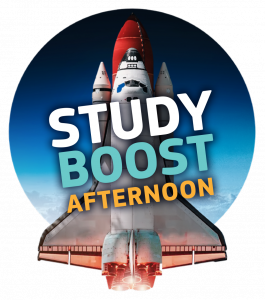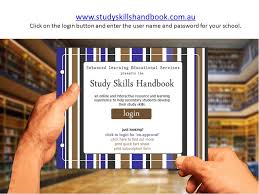Study boost for seniors
Effective use of study periods
As an individual
Some suggestions:
Work on time management and plan out your revision and assessments
Make a dedicated time each week to work on a major work
Use the Syllabus to make study notes
Check your study notes against a study guide
Draft and redraft you assessment
Engage with Marking criterias against your assessment draft
Send a teacher an email of a draft assessment for feedback on a draft
Review past HSC papers
Review NESA exam workbooks
Complete textbook chapter revision questions
Use the library for additional material for gaps in your learning
Use the library for additional material for provide evidence for your answers – Statistics, Quotes
Use the library to view CSSA Trial papers to practice
Predict questions by switching verbs and write a response under timed exam conditions
With a study buddy

Some suggestions:
Make a mind map of extended response planning
Make palm cards of key words and their definitions on the other side
Peer mark a draft assessment
Work through NESA multiple choice questions
Practice an oral presentation with a peer and ask for feedback
With a study group
 Advantages of working with a study group
Advantages of working with a study group
- It gives you a chance to ask questions about things you don’t understand rather than having to stop work as you don’t know how to go any further.
- It can save you time when a number of minds join together to try and understand a difficult concept rather than struggling with it yourself.
- Other people have different methods of approaching a problem, which you can learn from.
- You can pick up tips on study skills and techniques and strategies and learn from what other people do.
- You will strengthen your teamwork skills, which will be valuable for later life.
- By meeting together after school and working for an hour or so in a library many students find that they complete much more work than if they had gone straight home.
- Explaining something to someone else is also a great way to ensure that you fully understand the topic.
- Brainstorming in a group at the start of an assignment ignites lots of ideas due to the interaction and piggybacking of ideas that occurs. Students can fast track the initial development of their ideas then go their separate ways to develop them.
- Encouraging and motivating each other is an added benefit from meeting in a group. Students can set work targets together of what each of them will try and achieve when they get home
To avoid problems that may arise from working with a study group
- Try and select students who have similar goals to you and will be willing to share and do the work.
- Don’t make the group too large (the bigger the group the more side-tracked discussions and distractions).
- At the first meeting discuss the group’s expectations and perhaps any guidelines that you feel should be in place.
- Have an action plan for each meeting: what do you want to achieve in the allocated time?
- Perhaps have a different student each meeting whose job it is to keep the group on track and work through the action list of what you want to achieve.
- Be sure you do independent work yourself before coming to the group so that you have something to contribute.
- Only use a study group for appropriate types of work, if it is the sort of work you’d be better off doing quietly yourself then don’t do this in a group situation.
- If things are not going the way you’d like them to in the group, try and raise your concerns with the group otherwise you may need to tell the group you need to go and do the work by yourself.

Check out Br Steve’s study tips
How it works
The PJ Walsh Library is open until 5pm for students.
The following days provide specialised support to students from a staff member and senior students.
Monday – Reading boost
Tuesday – HSIE, Languages Boost
Wednesday – Maths boost & English Boost
Thursday – Assessment Boost
Study boost for seniors
The above Study boost webpages provide support material for all years. This is available 24/7.
Love learning? Try these brain trainers
 Mymaths online – Mathematics games and activities – Your maths teachers can help you with login details
Mymaths online – Mathematics games and activities – Your maths teachers can help you with login details

